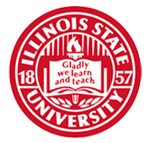Abstract
The study purpose was to examine the associations between a 15-week intervention pilot program and a variety of self-reported measures of tablet technology use for graduate students in speech-language pathology (SLP) across classroom and clinical contexts. Participants were millennial-aged students (n = 9) in an accredited SLP graduate program in the Midwest. Participants each received an iPad Air 2 tablet and engaged with other participants and clinical educators to regularly discuss and demonstrate tablet use relative to classroom environments and evidence-based clinical contexts. Participants were anonymously surveyed at four different intervals using a 30-item questionnaire that addressed frequency, competency, and use of iPad applications. Surveys were administered at the beginning, middle, and end of the semester, and at one-month follow-up. Data were analyzed both quantitatively and qualitatively in a mixed-methods design. Quantitatively, the frequency of use for clinical and academic purposes increased over the course of participation, but only significantly for clinical purposes. Qualitative data was organized into three primary themes: (1) frequency of iPad use for clinical purposes; (2) perceived competence with clinically-related iPad use; and (3) overall experience with the iPad Pilot Program. Results and recommendations regarding the use of tablet technology are discussed.
Recommended Citation
Hansen, T. N., Bjornsen, A. L., & DeVeney, S. L. (2017). Use of Tablet Technology: A Pilot Program for Graduate Students in Speech-Language Pathology. Teaching and Learning in Communication Sciences & Disorders, 1(1).
Included in
Other Teacher Education and Professional Development Commons, Special Education and Teaching Commons




